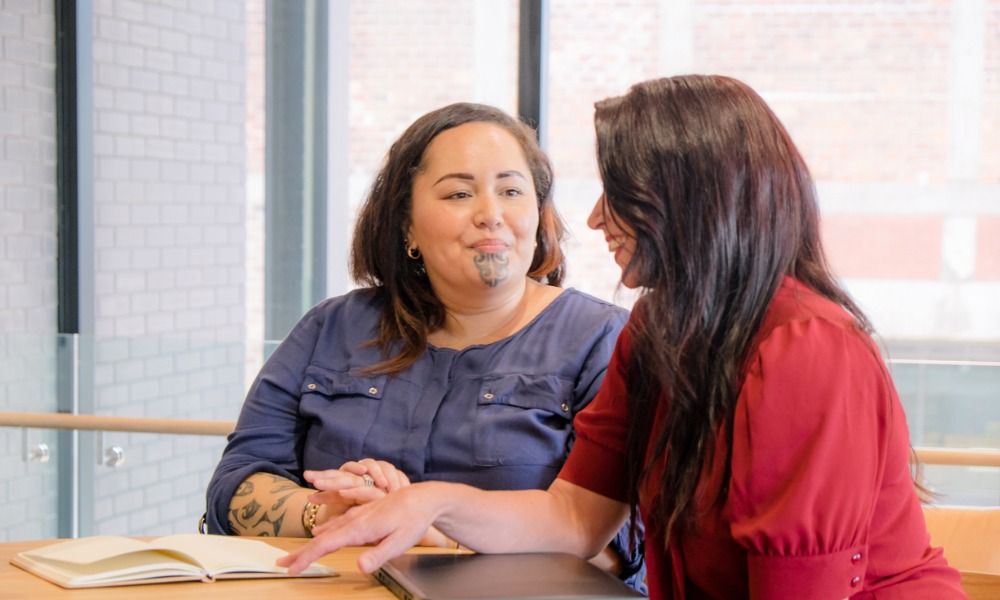
Transforming workplace wellbeing through Aotearoa's holistic health model

The focus on employee well-being is greater than ever before, prompting HR teams throughout the Motu to pioneer inventive strategies for optimising workforce welfare.
A heath model deeply rooted in the cultural fabric of Aotearoa, New Zealand, has the potential to transform workforce well-being.
Te Whare Tapa Whā, a Māori health model conceptualised in the 1980s by Māori health advocate Sir Mason Durie, draws inspiration from traditional Māori wharenui, symbolizing interconnected dimensions of well-being.
In a recent webinar, Arianna Rangi, Māori and business policy lead at New Zealand Health Group, noted, “Although it is a Māori health model, there’s something in it for everyone. No matter where you’re from, your background, or who you are, the principles of this model can be applied to everybody.”
Initially rooted in mental health, Te Whare Tapa Whā has evolved into a solution for organisations seeking a more inclusive and holistic approach to employee welfare. It offers a distinctive perspective on well-being by intertwining four dimensions that, when harmonised, contribute to an individual's overall wellness.
“Te Whare Tapa Whā literally translates to ‘The House of Four Walls.’ The idea is that you need each of those different taha, or sides of the house, to be in balance and supported to have strong overall well-being,” explains Rangi.
Taha wairua (Spiritual well-being)
Spiritual connection, delving into the essence of life force, spiritual beliefs, and cultural practices. This taha encourages organisations to embrace diversity and create an environment that respects various belief systems.
Taha hinengaro (Mental and emotional well-being)
Mental and emotional health, encompassing thoughts, feelings, behaviours, and knowledge expansion. It encourages open dialogue and mental health support, emphasising the significance of understanding and expressing emotions.
Taha tinana (Physical well-being)
The sacredness of the body, advocating for an understanding of how the body grows, heals, moves, and functions. This dimension calls for initiatives that promote healthy living, exercise, and a supportive work environment for employees' physical well-being.
Taha whānau (Social well-being)
Social connections and relationships, broadening the concept of family to include extended relationships. It encourages organisations to foster a sense of community, belonging, and support.
The application of Te Whare Tapa Whā starts with leadership and leading by example. Rangi suggests, “If you set an expectation that all hui will be opened and closed with karakia, you are leading by example in that space, and encourage people to connect with whakapapa, te ao Māori, and whānau.”
While leadership is pivotal, Rangi emphasises the importance of including the entire whānau in the decision-making process. “If you consider your colleagues to be part of your whānau, make sure you take the time to actually listen to your colleagues and your teams and get their feedback and have their voice at the centre of what you’re doing.”
Embracing Te Whare Tapa Whā necessitates manaakitanga, caring and respect, both within the organisation and externally with key stakeholders. “That could be in terms of providing kai for your team, it could be making sure that you do karakia to start with, it could be making sure that you just check in with people constantly just to see how they’re going and making sure that they’re okay. And treating each other with respect and having that zero tolerance for any form of discrimination.”
To implement Te Whare Tapa Whā effectively, Rangi advises reflecting on current practices that contribute to well-being, identifying which of the four taha they belong to, and initiating actions to strengthen the organisation’s wharenui.
“There’s lots of different ways that you look at applying this model,” said Rangi, “but it’s really important to acknowledge that sometimes unconscious bias can come into play in this space. So, it’s making sure you take the time to understand your unconscious bias, understand your world view, and the lens you’re applying.”
You can find out more about Te Whare Tapa Whā in a book co-authored by Rangi, “Together: Te Oranga o te Katoa.” To find out more and download a free introduction, click here.